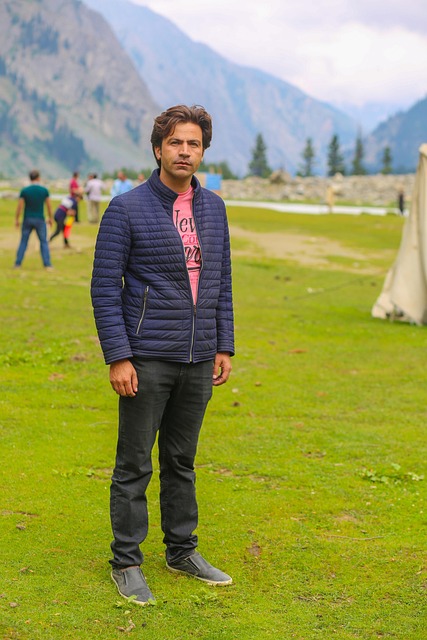International mediation and arbitration offer a neutral platform for resolving water disputes between Pakistan and Bangladesh, addressing complex geographical and demographic challenges. By facilitating negotiations and balancing competing interests, these methods foster dialogue, promote gender equality, and sustainable development. Despite historical claims and increasing demands, both countries explore innovative solutions like alternative water sources and efficient irrigation. Technological innovations such as advanced sensors and IoT devices enable real-time monitoring and enhance transparency, transforming water dispute management beyond political disputes.
“Despite historical connections and shared rivers, Pakistan and Bangladesh have faced water-related disputes. This article explores comprehensive solutions to these conflicts, focusing on international mediation and arbitration as a neutral ground. We delve into the historical perspective and challenges of River Water Sharing Agreements between the two nations. Additionally, highlighting technological innovations, we discuss how advancements in monitoring and data management can foster sustainable water resource allocation.”
- International Mediation and Arbitration: A Neutral Ground
- River Water Sharing Agreements: Historical Perspective and Challenges
- Technological Innovations: Enhancing Monitoring and Data Management
International Mediation and Arbitration: A Neutral Ground

When it comes to resolving water disputes between countries like Pakistan and Bangladesh, International Mediation and Arbitration serve as a neutral ground offering promising solutions. These methods provide a framework where both nations can come together and negotiate, facilitated by impartial third parties. This approach is particularly beneficial considering the complex geographical and demographic factors at play in the Pakistan-Bangladesh context, including the shared rivers and varying demographic trends.
The strategic location of water bodies often becomes a point of contention, requiring creative solutions to balance transportation infrastructure needs with equitable access. In this regard, international mediators can help navigate the intricate web of interests, enabling both countries to find common ground on issues such as water allocation, management practices, and conflict resolution strategies. Moreover, by appealing to global principles of fairness and sustainability, mediation and arbitration can foster a positive environment for dialogue, ultimately leading to agreements that promote gender equality progress and sustainable development in the region.
River Water Sharing Agreements: Historical Perspective and Challenges

The historical relationship between Pakistan and Bangladesh, formerly East Pakistan, has been marked by both cooperation and conflict, with water sharing being a significant point of contention. River Water Sharing Agreements have been a key strategy to manage this delicate issue. Over the years, several pacts have been signed, reflecting a nuanced approach to allocating shared river resources fairly.
However, these agreements face numerous challenges. Historical disputes over water rights, especially regarding the Ganges and Brahmaputra rivers, remain unresolved. The rapid industrial growth in both Muslim majority nations has increased water demand, straining existing resources. Moreover, social security systems and the need for sustainable development must be considered alongside economic priorities. Despite these hurdles, finding common ground through dialogue and innovative solutions is crucial. For instance, exploring alternative sources of water supply, improving irrigation efficiency, and promoting transboundary cooperation could pave the way for a more harmonious future between Pakistan and Bangladesh, where both countries can thrive while ensuring equitable access to this vital resource, as evidenced by ongoing initiatives aimed at gender equality progress.
Technological Innovations: Enhancing Monitoring and Data Management

In the ongoing water dispute between Pakistan and Bangladesh, technological innovations are playing a pivotal role in enhancing monitoring and data management. Advanced sensors and IoT (Internet of Things) devices are being deployed along rivers and reservoirs to track water levels, flow rates, and pollution levels in real-time. This not only provides accurate data but also allows for early detection of any discrepancies or potential crises, enabling both countries to take proactive measures.
By leveraging these technological advancements, Pakistan and Bangladesh can improve their dispute resolution mechanisms. Real-time data analysis can help identify the root causes of water scarcity or contamination, which often stem from issues like illegal extraction, agricultural runoff, and industrial waste disposal. Moreover, this technology facilitates transparent communication between the two nations, fostering a collaborative environment that prioritizes sustainable water management over political disputes. Give us a call at civil society engagement to explore how these innovations can be further integrated into existing water governance frameworks.
In managing water disputes between Pakistan and Bangladesh, a multifaceted approach is necessary. While international mediation and arbitration offer a neutral ground for negotiation, historical river water sharing agreements require revisiting to address existing challenges. Technological innovations play a pivotal role in enhancing monitoring and data management, ensuring equitable distribution and sustainable use of water resources. By combining these strategies, both countries can forge ahead towards a cooperative future, where shared water resources become a catalyst for peace and prosperity rather than a source of conflict.
